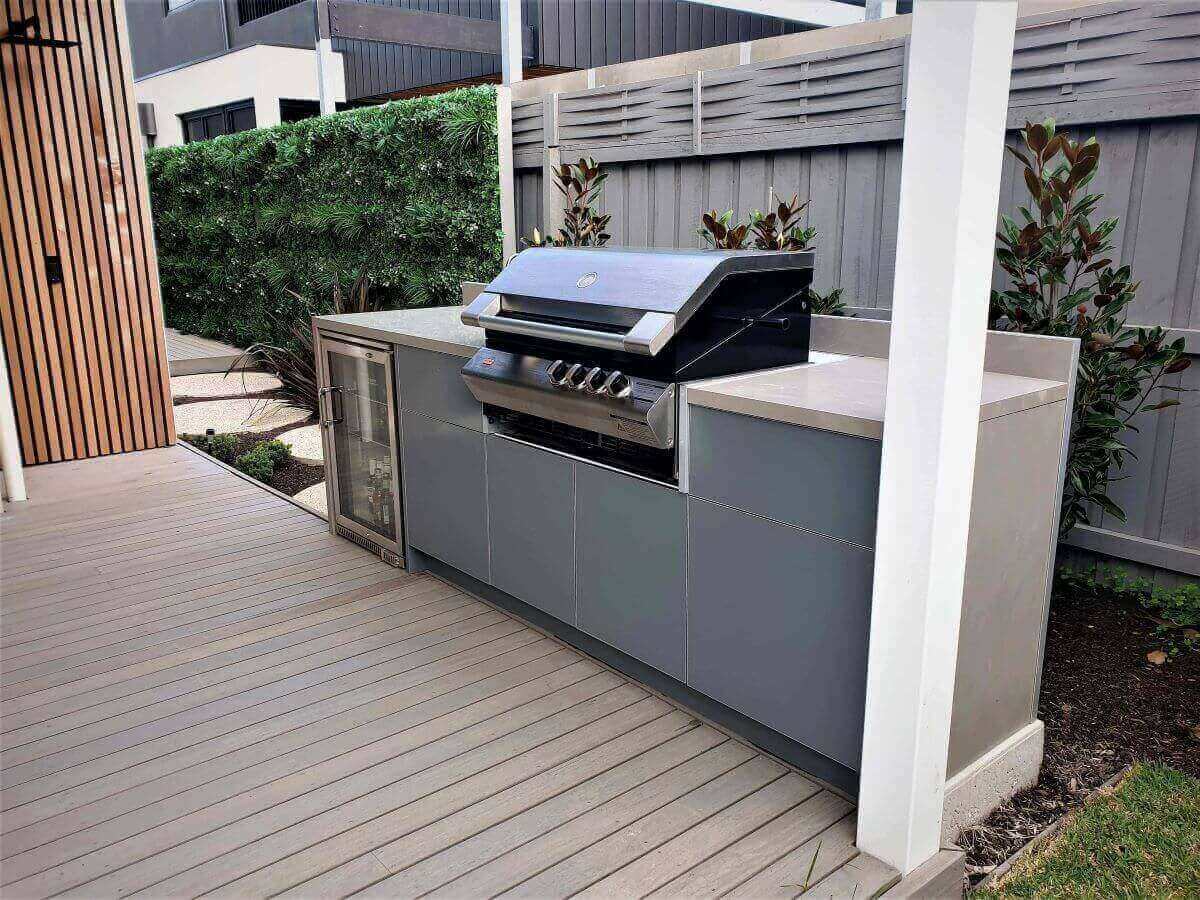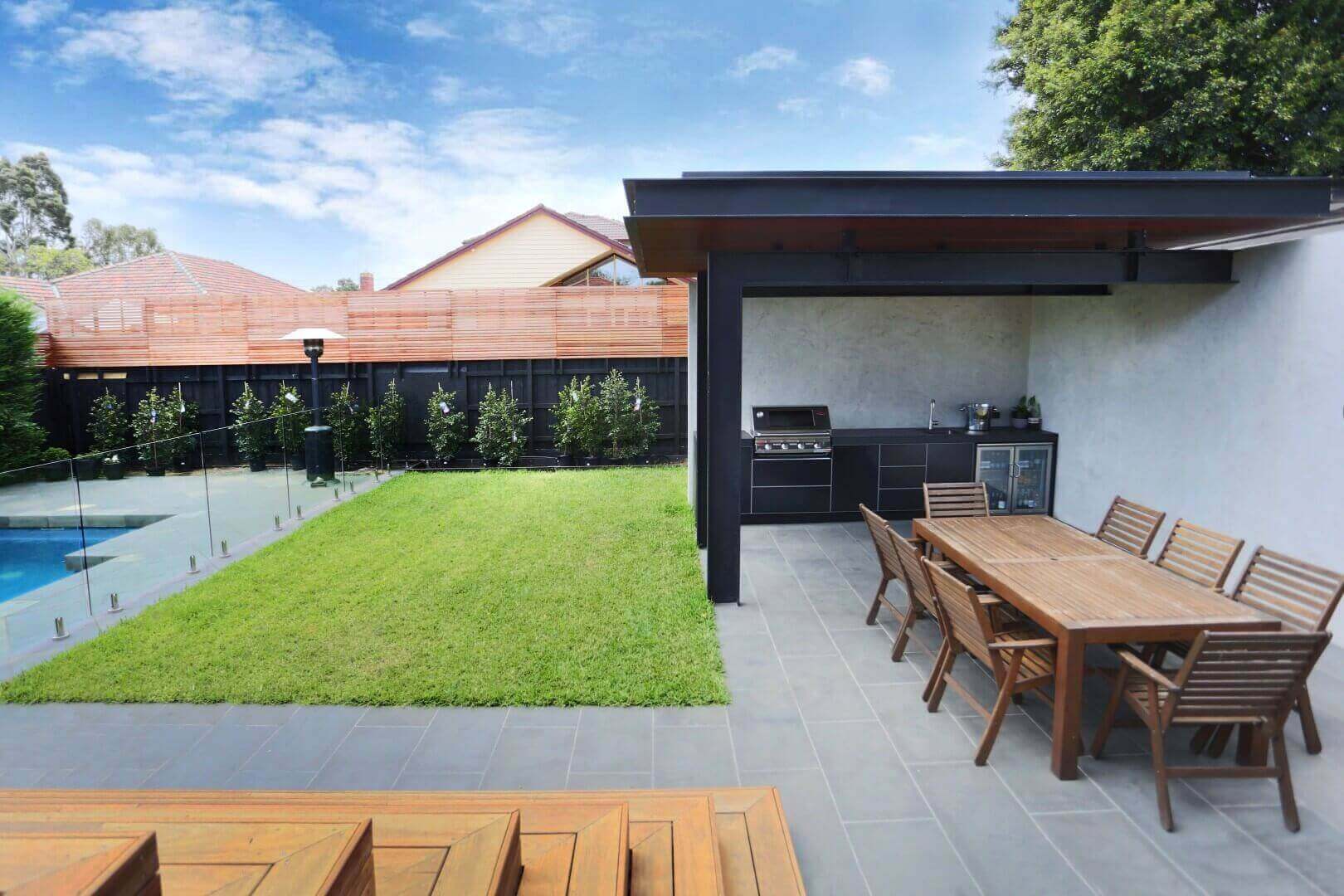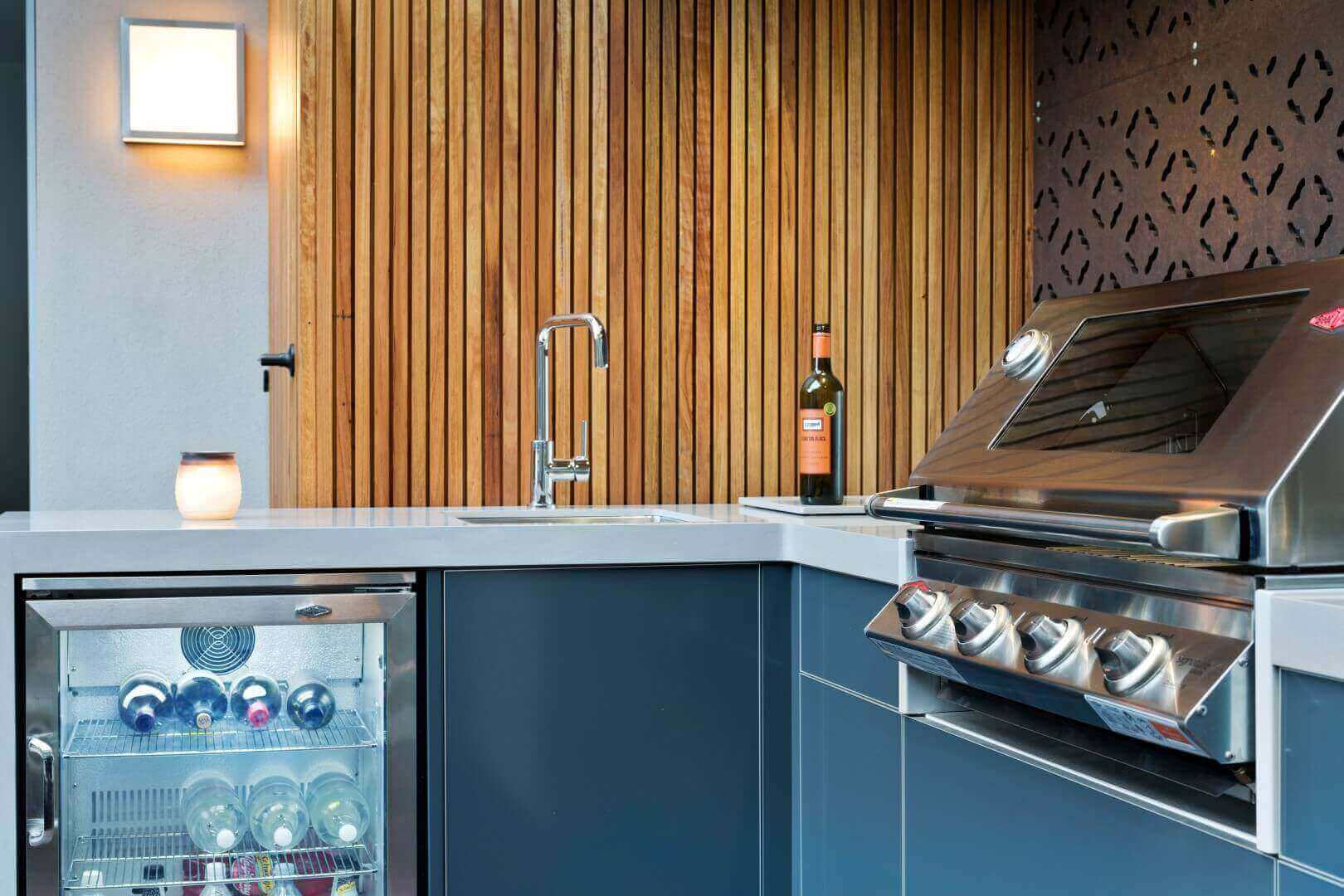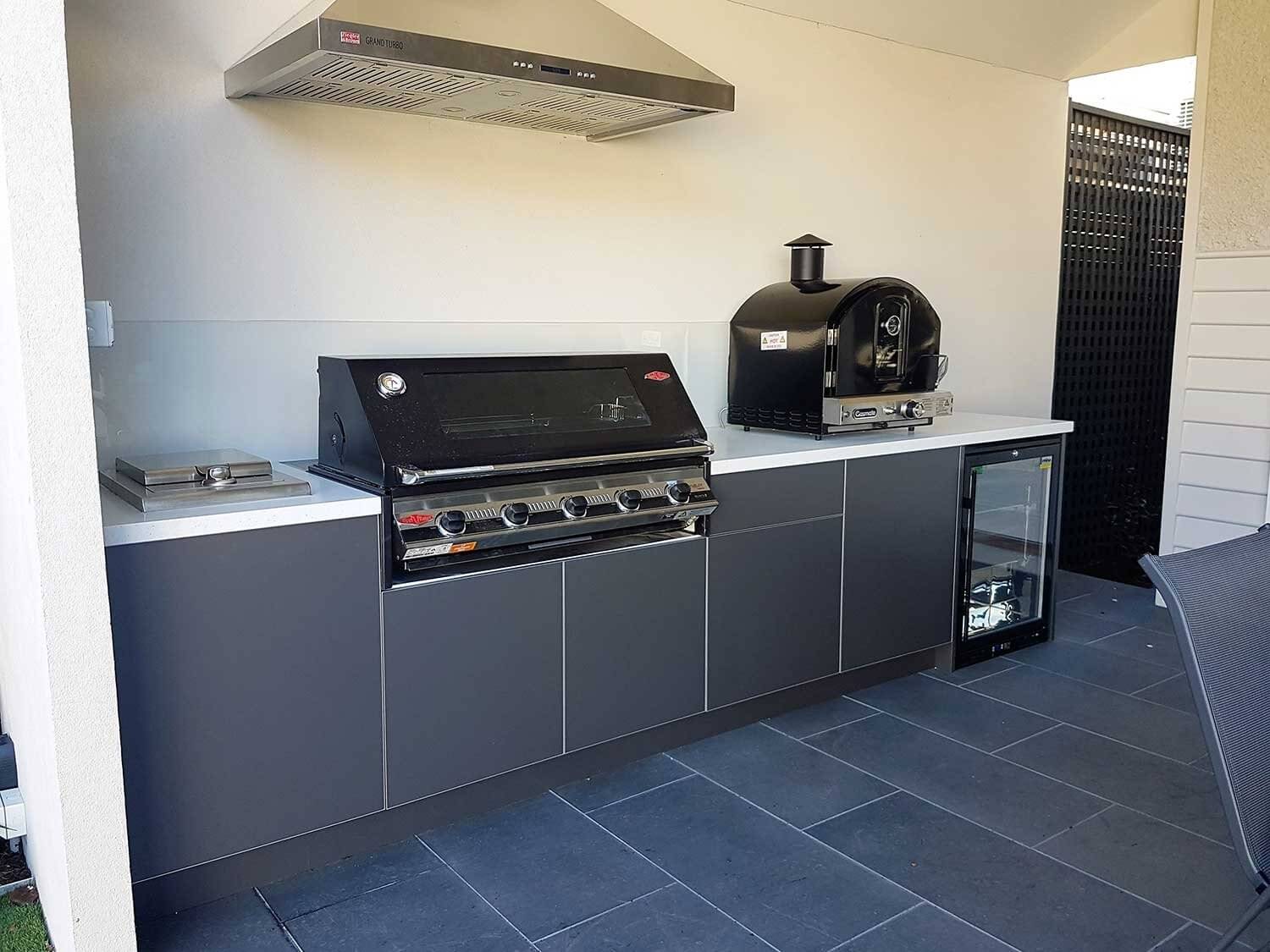How to take care of your barbecue correctly
Investing in a good quality barbecue is one of the most important things for your Outdoor Kitchen. For many people, it's the focus point of the whole space. However, while there are a million articles on what you should do, there isn't a lot that explains what you shouldn't.
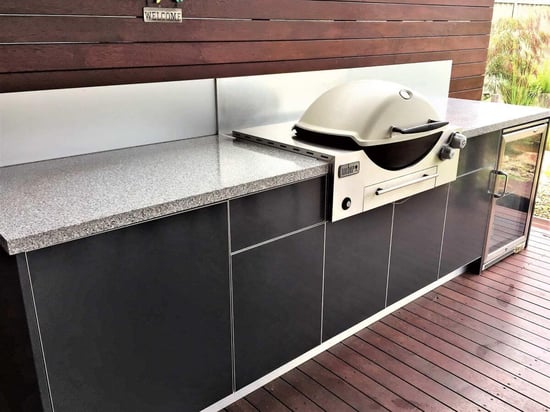 Any Outdoor Kitchen Barbecues worth having will be an investment. It's something you're going to be regularly using and the centre of days outdoors with people you love. Proper care and maintenance will ensure your barbecue lasts for years to come and continues to produce beautifully cooked meals consistently throughout that time.
Any Outdoor Kitchen Barbecues worth having will be an investment. It's something you're going to be regularly using and the centre of days outdoors with people you love. Proper care and maintenance will ensure your barbecue lasts for years to come and continues to produce beautifully cooked meals consistently throughout that time.
Don't Mistreat Your Stainless Steel.
Stainless steel is an excellent option for your barbecue. It's a premium finish that's hygienic and can stand the heat of your grill; however, that doesn't mean you can neglect it. Harsh chemicals aren't to be used on any part of the barbecue as they will affect the finish. As well as any abrasive scrubbers, like steel wool or wire brushes, are to be avoided entirely with any stainless steel surfaces.
If you do have stubborn stains, try using a non-scratch scrubber. Make sure to scrub along the grain in the stainless steel. Never rub in circular patterns or back and forth across the grain. It's always a good idea to test any new scrubber in an inconspicuous spot to see the impact it will leave on your finish before using it all over your barbecue. Mild soap and warm water are recommended for most cleaning needs.
Rinse with clean water after you're done, and wait for the barbecue to dry before igniting ultimately. Use a stainless steel polish or wipes after cleaning to give the finish its shine back. 
High-Pressure Cleaners / Garden Hoses
Never a good option to clean your barbecue with. Any high-pressure cleaner will offset any time saved by the less intensive cleaning by the number of problems it will cause in the long run. Having grease and all sorts of food residue spraying across your backyard will attract all kinds of bugs and animals into your home. As well as driving dirt and rubble into hard to reach places inside your barbecue, like into your burners. This kind of clogging can affect the flow of gas to your burners and their overall performance.
Don't Allow Your Barbecue To Cool Before Cleaning.
Once you've finished cooking and your plate is complete and ready to eat, it's tempting for most of us to close the lid and enjoy the company of our loved ones. But it's always best, and much easier, to clean your barbecue while it's still warm. When left to cool down, cleaning residue from your grill is much more of a hassle than it needs to be. Take a metal baking tray, such as a stainless steel bowl or a pie tin, and fill it with water. Turn one of your burners on just enough to make your water slowly boil, and close the lid.
You want to keep the water gently boiling, as you wish to have enough steam to keep everything soft and malleable for when you've finished eating and get a chance to clean it. The food residue will be much easier to clean as it will have loosened by the steam. Be cautious when you're ready to open the lid; moisture can cause injury if handled carelessly. Turn your burners off first and wait a few moments before carefully opening the lid to begin cleaning.
Have A Cleaning Routine That Works For You
Grease, oils and food residue go bad quickly. If left uncleaned, whether on top of the grill or underneath will seep into your food and sour the taste. The black crust that can also gather on your grill can quickly ruin a meal as it easily sticks to food. Having a cleaning routine is imperative to have delicious meals and preserve the performance of your barbecue as a whole.
You can personalise this technique to you and your barbecue, but this is the primary recommended cleaning process for a gas barbecue:
- Turn off and disconnect your gas source. Check to see if your gas hose is intact and without cracks or deterioration before you start cleaning. If it is, replace it immediately or at least before the next time you use your barbecue.
- Remove any accessories, such as a tray or rotisserie, and scrape away any residue or fat. Wash in a tub of hot soapy water. It's a good idea to wear thick rubber gloves; the hotter the water, the more manageable the grease will be washed away. The gloves will protect your skin from the heat and allow you to use a more desirable temperature.
- Scrub away any excess residues of grease and fat or burnt food from the grill. Remove and wash in hot soapy water. Ensure to clean both front and back to get anything that may have dripped underneath.
- Before putting your grills back, give the inside of the barbecue a clean with barbecue wipes or a soft cloth soaked in soapy water.
- Make sure both the grills and barbecue are completely dry before reassembling.
Don't Forget The Outside Of Your Barbecue.
While much easier to clean, the outside of your barbecue is often overlooked in the emphasis on keeping the inside, where the food touches, as hygienic and primed for cooking as possible. One of the easiest things you can include to maintain the outwards appearance of your barbecue is to invest in a barbecue cover. Beefeater has some great covers for all types of barbecues and needs on their website if you need somewhere to start.
We also have a blog post where we went more into depth on choosing the right cover for your barbecue—covering everything from the importance of what a body will do for your barbecue to what lining material would fit your needs best. For food splatters that landed on your hood or fingerprints left on the outside, warm soapy water or a gentle all-purpose cleaning will be all you need.
_____
For more innovative ideas like these, check out our blog page.


